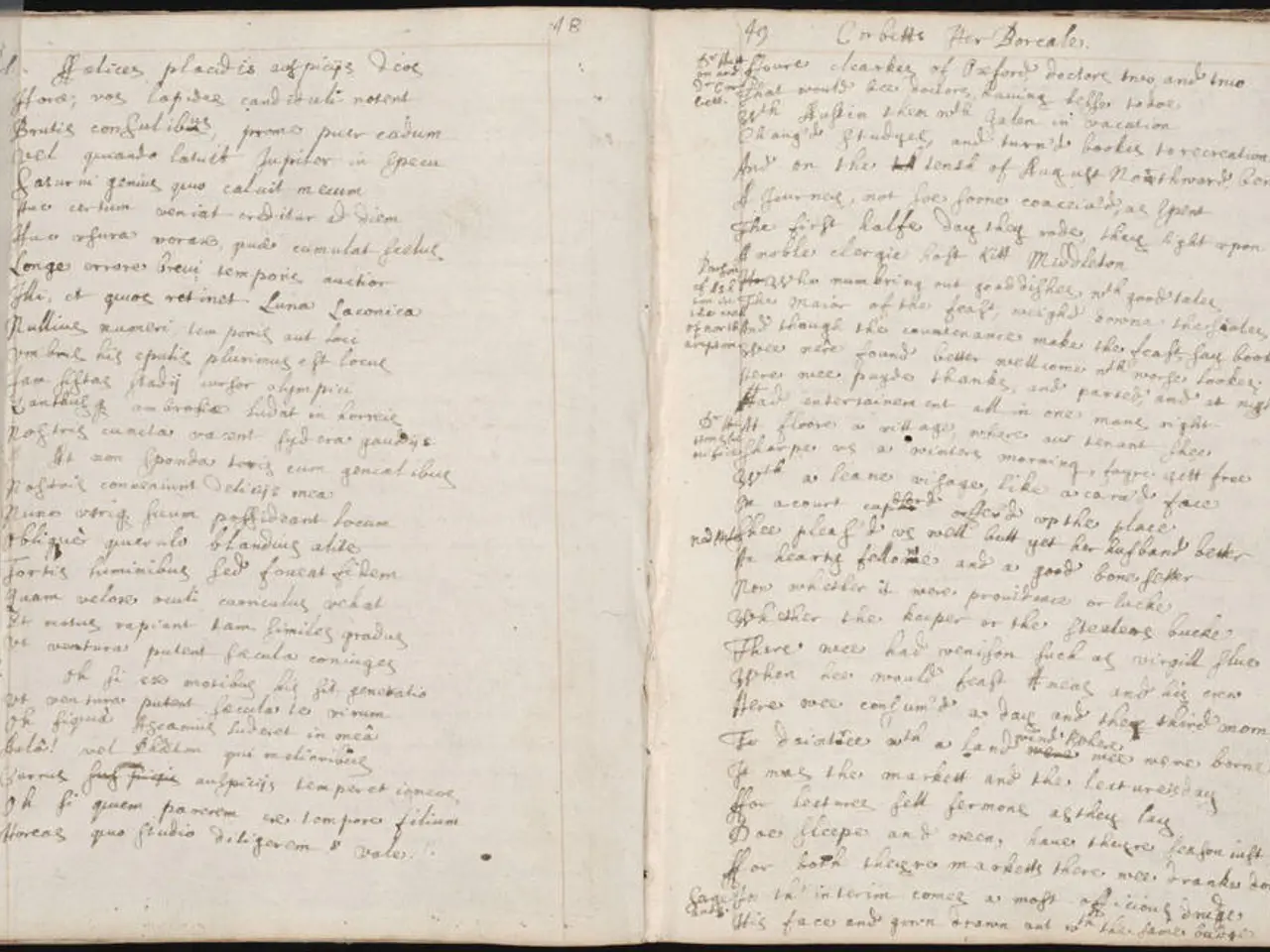Unleashing Creativity: The Comprehensive Handbook (Strategies, Advantages, and Inspiration)
In the world of writing, free writing stands out as a unique and effective technique that encourages creativity, boosts confidence, and helps overcome insecurities. This independent writing method, where writers let their thoughts flow freely without worrying about grammar, spelling, or quality of ideas, has been gaining popularity among authors, students, and individuals seeking to enhance their creative process.
The process of free writing is simple yet powerful. Set a timer, typically for 5 to 15 minutes, and write non-stop about whatever comes to mind, ignoring spelling, grammar, or coherence. Avoid stopping to think, edit, or censor yourself. After the time is up, review the writing to identify interesting ideas or themes that can be used as a springboard for further writing, outlining, or drafting.
Free writing offers numerous benefits. One of the most significant advantages is boosting creativity. By removing the pressure of producing perfect prose, it encourages spontaneous and novel ideas to emerge. It bypasses the internal critic that often blocks creativity, allowing thoughts to flow freely and surprising connections or insights to surface.
Another benefit is overcoming writing anxiety and perfectionism. Free writing helps overcome these barriers by giving permission to write badly at first. This reduces the fear of making mistakes, which is a common cause of creative blocks. By letting go of expectations and just writing whatever comes to mind, writers can move past the paralysis of starting and gain momentum.
In addition, free writing improves writing skills. Though it is unstructured, it supports skill development by encouraging regular writing practice and idea generation. It trains writers to trust their instincts, develop fluency, and generate raw content quickly. Reviewing free writing can highlight promising ideas and themes to develop further, enhancing planning and drafting phases. Over time, this practice deepens writers’ ability to express thoughts fluidly and creatively.
Free writing can also help when one is anxious and overwhelmed, putting fears into perspective and helping to come up with new solutions. The more you free write, the more accepting you'll become of your own thoughts and let them spill out without judgement. Turning off distractions such as TV, notifications, and emails is recommended during free writing sessions.
A free writing session can prepare one to face longer and more demanding writing projects. Free writing is similar to brainstorming but less structured, and it's often used in academia to generate new ideas without self-censure. To start free writing, one can aim for a page a day or 10 minutes of continuous writing, and write about how they're feeling.
After a free writing session, one should not expect glorious literature and should not analyze or critique what they've written. Free writing is all about writing whatever comes into your head, without letting your inner critic silence you. Using real paper for free writing is beneficial compared to writing on a computer. Some of the writing may turn into a ramble, but the point is to release your thoughts, not to compose a brilliant essay.
Do not go back to edit or fix mistakes while free writing. The technique of free writing was influential on writers like Jack Kerouac and his concept of spontaneous prose. Free writing can help with overcoming traumas, boosting self-acceptance, finding your authentic voice, reducing perfectionism, building self-confidence, and self-trust.
Free writing reached peak fame in The Artist's Way, where Julia Cameron recommended writing three full pages every morning with stream of consciousness thoughts (aka Morning Pages). Dorothea Brande, one of the earliest proponents of free writing, advised writers to write for a half hour every morning as rapidly as possible.
In conclusion, free writing is an essential, low-pressure tool in the writing process that encourages creativity, diminishes writing insecurities, and helps writers generate material that can be refined into polished work. Whether you're a seasoned writer or just starting out, incorporating free writing into your routine could be a game-changer for your creative journey.
- Journal prompts can include daily journaling as a method for enhancing personal growth, career development, relationships, education-and-self-development, home-and-garden, fashion-and-beauty, food-and-drink, and lifestyle.
- Implementing daily journaling, utilizing the free writing technique, can boost creativity, which in turn, can lead to fresh ideas in various aspects of life such as fashion-and-beauty, home-and-garden, and food-and-drink.
- Incorporating a 10-minute free writing session into a routine can help overcome daily challenges by putting fears into perspective, offering possible solutions, and fostering personal growth.
- Apart from the benefits for writing, engaging in free writing can help individuals build self-confidence, self-trust, and improve self-acceptance, which are crucial in both personal and professional life (career-development).
- Free writing sessions can assist individuals in preparing for larger and more demanding projects, allowing them to generate a vast amount of content for various areas such as education-and-self-development and lifestyle writing.




